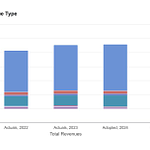Welcome to an appropriately named month, one that marks the beginning of meteorological spring in the Northern Hemisphere. That’s a phrase I’ve not known until today, nor did I know that the equinox in three weeks marks the beginning of vernal spring. There is so much to be learned about the world around us, and every installment of Charlottesville Community Engagement seeks to bring a little of it to your attention. I’m your host, Sean Tubbs.
On today’s program:
Governor Youngkin issues his first veto, and a round-up of bills that have not passed the General Assembly
The Charlottesville Redevelopment and Housing Authority agrees to issue $23 million in bonds for a California firm to renovate Midway Manor
An international panel releases new information about the efforts to slow the rise in global temperatures
First shout-out goes to the Rivanna Conservation Alliance
In today’s first Patreon-fueled shout-out, the Rivanna Conservation Alliance wants wildlife and nature photographers to enter their first-ever photography contest! They want high-resolution photos related to the Rivanna watershed and the winning entries will be displayed at the 2022 Riverfest Celebration on May 1. The two categories are 16 and under, and those over the age of 17. You can send in two entries, and the work may be used to supplement Rivanna Conservation Alliance publications. For more information, visit rivannariver.org.
Governor Youngkin vetoes Arlington police auditor bill
Arlington County will not be able to appoint an independent auditor to monitor the police department with the same powers as a civilian review board. Governor Glenn Youngkin has vetoed HB670 which would have granted the Arlington County Board that ability. The measure passed the House of Delegates on a 65 to 35 vote and the Senate on a much closer 21 to 19 vote.
In his veto statement, Youngkin said such a move would grant too much power without appropriate protections for law enforcement officers.
“Investing in a single politically-appointed individual the power of judge, jury, and executioner without any input from law-enforcement officers or delineated qualifications for such [an] individual constitutes an undue burden for those who protect and serve the community,” Youngkin wrote in his statement.
More on the General Assembly later on in this newsletter.
IPCC releases new report
A new report from the Intergovernmental Panel on Climate Change warns that rising global temperatures are causing disruptions for nature and humanity across the planet. A working group of scientists from 195 nations gathered for two weeks to review and approve Climate Change 2022: Impacts, Adaptation, and Vulnerability.
“The world faces unavoidable multiple climate hazards over the next two decades with global warming of 1.5°C (2.7°F),” reads a press release for the report. “Even temporarily exceeding this warming level will result in additional severe impacts, some of which will be irreversible. Risks for society will increase, including to infrastructure and low-lying coastal settlements.”
The report urges continued work to reduce greenhouse gas emissions and suggests ways this can be done while improving people’s lives, but also points out that growing urbanization and social inequality will hasten the problem.
The full report is 3,675 pages long but the technical summary is a bit more manageable at 96 pages. I suspect most readers and listeners will opt for the 36-page summary for policymakers.
“This report has a particular focus on transformation16 and system transitions in energy; land, ocean, coastal and freshwater ecosystems; urban, rural and infrastructure; and industry and society,” reads the introduction to that summary. “These transitions make possible the adaptation required for high levels of human health and wellbeing, economic and social resilience, ecosystem health, and planetary health.”
For more information on what local and state governments are doing to meet their greenhouse reduction goals, here are some resources:
Yesterday, the U.S. Supreme Court heard a case that challenges the power of the U.S. Environmental Protection Agency. Read the transcript of the argument here or listen to the oral arguments. Read one account of how it went on Bloomberg Law.
CRHA approves $23 million in bonds for Midway Manor renovations
The Board of Commissioners for the Charlottesville Redevelopment and Housing Authority has taken the first step toward issuing up to $23 million in bonds for a California-based company to renovate Midway Manor in a way that will keep existing affordability requirements in place.
“This is a 98-unit elderly affordable housing development on Ridge Street very close to the Greyhound station and the proposal is to issue some bonds to assist with the financing of a comprehensive renovation of this project,” said Delphine Carnes, the legal counsel for the CRHA.
Standard Communities closed on their $16.45 million acquisition of Midway Manor on January 13. They say that the current affordability levels will be maintained, and common spaces and amenities will be upgraded. They’re asking the CRHA to issue “exempt facility” bonds to renovate the 98 units. No new market-rate units would be added.
“The role of the housing authority in this particular project is as a conduit bond issuer,” Carnes said.
That means the CRHA would not have any obligations for the property, and neither CRHA or the City of Charlottesville would be responsible for paying back the bonds. Carnes said there were benefits to issuing the bonds.
“First, they ensure the continued renovation and redevelopment of affordable housing units in the City of Charlottesville which is very complementary to your own mission but it doesn’t cost you a dime,” Carnes said. “As a matter of fact, it creates some revenue to you because you are receiving a fee for being the issuer of these bonds.”
Carnes did not have a number on hand at the public hearing, but said the funding could be used for any purpose by the CRHA.

The CRHA will need to approve the project once more after the bond documents are finalized.
Steven Kahn is a director with Standard Communities. During the public hearing, he acknowledged that many do not know what his company does.
“We’ve got about 13,000 units of affordable housing across the country in 19 different states,” Kahn said. “This will be our first project in Charlottesville but hopefully not our last as we see to it that we try to do our business the right way and always get invited back for repeat performances and we’ve done that very successfully across the country.”
Kahn called Midway Manor a tremendous asset that has served a population in need of housing and a need for certainty. The current affordability requirements are running out.
“And our intentions with Midway Manor are to take the federal rental subsidy contract that does expire in a couple of years and renew that for as long as the [U.S. Department of Housing and Urban Development] to do so which is at present is a 20-year contract,” Kahn said. “And in partnership also work with [Virginia Housing Development Authority] to receive an allocation of four percent low-income housing tax credits which will allow us in partnership with these bonds to do a very extensive renovation of the property.”
Kahn said the renovations would be expansive with full upgrades of interiors as well as an energy-efficient retrofit of heating and cooling systems and electric systems.
The specifics of how renovation will work are not yet available, but Kahn said the hope is to not relocate tenants while the work is done over an 18-month period.
“We’ve got a tremendous amount of experience doing that,” Kahn said. “North of ten thousand units completing renovations without displacing residents, even during the renovation process.”
The executive director of the Public Housing Association of Residents asked for careful consideration of the issuance of the bonds.
“I’ve spoken with two resident leaders at Midway Manor and their desire is to come to an answer as expeditiously as possible about the status of the building,” said Shelby Marie Edwards. “To be clear, I know CRHA does not own the building. And if anybody can help them make sure the units are affordable and that the building is upgrade and becoming of our citizens they would be grateful for the help. They are looking for the answer to the question: What’s going to happen to the resident. Where are we going?”
Kahn said Standard Communities is a “high-touch” organization when it plans for these projects to make sure residents know what is going on. He said there will be a kickoff meeting for residents when the project is closer to moving forward.
“Miscommunication or misinformation spreads very quickly through communities and we try to make sure that it is not something we are a part of,” Kahn said.
Kahn said they are hoping to close the sale of the bonds this summer and get started with construction soon after. In the meantime, he said there were a number of issues that Standard Communities know need to be fixed.
“There are a lot of things that we became aware of during our due diligence of the property that need some attention before then,” Kahn said. “We’ve put those underway. Elevator modernization is one of them. I know there [are] some concerns with the intercom system at the entryway.”
The five CRHA Commissioners who were present on the virtual meeting voted unanimously to authorize the bond issuance.
It is important to note that the Low Income Housing Tax Credits are in a separate category than the competitive ones that are being sought for other projects in the area.
“The four percent LIHTC pool is noncompetitive while the nine percent pool is very competitive,” said John Sales, executive director of the CRHA.
Sales said Council will also have to approve the issuance of the bonds.
More from the CRHA meeting in a future version of the program.
Second shout-out goes to an arboreal event at the Virginia Festival of the Book
In today’s second subscriber-supported Public Service Announcement, the Charlottesville Area Tree Stewards wants to draw your attention to a Virginia Festival of the Book event coming up on March 16. Michelle Nijhuis will lead a virtual conversation on “Seeing Trees, Saving the Great Forests”. Nijhuis will speak with forest scientists and preservationists Meg Lowman and John Reid. Lowman is the author of The Arbornaut: A Life Discovering the Eighth Planet in the Trees Above Us. Reid is the co-author of Ever Green: Saving Big Forests to Save the Earth. The event on March 16 begins at noon. To register, visit vabook.org.
General Assembly update: Divided government edition
The 2022 Virginia General Assembly has just over two weeks left to go, and the pattern remains much of the same. Many bills that narrowly passed in one House of the bicameral legislature are now being defeated in committees of the other, a clear sign of divided government. Let’s go through some of those today.
A Senate bill (SB27) to expand the Education Improvement Scholarships Tax Credit was tabled by the House Appropriations Committee.
A Senate bill (SB290) to require local and state government agencies to construct energy efficient roofs on new public buildings failed to report out of the House General Laws Committee on a 10 to 12 vote.
A Senate bill (SB559) to require more disclosure from registered lobbyists was tabled in the General Laws Committee on a 12 to 9 vote.
Senate Bill 576 would have allowed betting on Virginia college sports, but it was tabled in the House General Laws Committee on an 18 to 4 vote.
A Senate bill (SB310) that would have prohibited plastic guns and made their sales or posession a Class 5 felony was tabled in the House Public Safety Committee on a 12 to 10 vote. This had passed the Senate on a 22 to 18 vote.
Now over to the Senate.
House Bill 1301 would have directed the Department of Environmental Quality to withdraw from the Regional Greenhouse Gas Initiative. It passed the House of Delegates on a 52 to 48 vote, but was tabled in the Senate Agriculture, Conservation, and Natural Resources Committee on an 8 to 7 vote.
Another bill that would have watered down the Air Pollution Control Board’s requirements for renewable energy had passed the House of Delegates on a 53 to 47 vote, but was passed by indefinitely in the Senate Commerce and Labor Committee on a nine to five vote. (SB81)
A bill that would have required parental notification of the use of any sexually explicit materials in public school failed to report from the Senate Education and Health Committee on a 7 to 8 vote. (HB1009)
A bill to advance Governor Glenn Younkgin’s Lab School initiative was passed by indefinitely by the Senate Education and Health Committee on a 9 to 6 vote. (HB356)
House Bill 539 would have required public colleges and universities to notify would-be students that they could be disqualified by “certain criminal convictions.” That bill was passed by indefinitely in the Senate Education and Health Committee.
Localities would not have been allowed to require contractors to provide certain benefits if HB58 had passed. The Senate General Laws and Technology Committee passed this by indefinitely on an 8 to 7 vote.
Virginia’s Director of Diversity, Equity, and Inclusion will retain that name. HB1300 would have required the renaming to Director of Diversity, Opportunity, and Inclusion was passed by indefinitely on an 8 to 7 vote.
Currently law-enforcement officers who are in a community with a police civilian review board are subject to a different interpretation of the Law-Enforcement Officers Procedural Guarantee Act. HB70 would have changed that, and the Senate Judiciary Committee passed that by indefinitely on a 9 to 6 vote.
Law enforcements will continue to not be allowed to stop motorists for minor infractions. House Bill 79 would have removed those provisions passed by a Democrat-led General Assembly and it passed the Republican-run House of Delegates on a 52 to 45 vote. The Cemocrat-controlled Senate Judiciary Committee passed this by indefinitely on a 9 to 6 vote.
Currently if you have a firearm stolen from you, you must report that to a law-enforcement agency. House Bill 325 would have dropped that requirement by the Senate Judiciary Committee passed this by indefinitely on an 8 to 7 vote. Other House bills related to firearms were also defeated. One would have repealed a recently passed law that allows firearms to be removed from the possession of people deemed to be a risk (HB509). Localities will also continue to be able to prohibit firearms in public places (HB827).
Support the program!
Special announcement of a continuing promo with Ting! Are you interested in fast internet? Visit this site and enter your address to see if you can get service through Ting. If you decide to proceed to make the switch, you’ll get:
Free installation
Second month of Ting service for free
A $75 gift card to the Downtown Mall
Additionally, Ting will match your Substack subscription to support Town Crier Productions, the company that produces this newsletter and other community offerings. So, your $5 a month subscription yields $5 for TCP. Your $50 a year subscription yields $50 for TCP! The same goes for a $200 a year subscription! All goes to cover the costs of getting this newsletter out as often as possible. Learn more here!

















March 1, 2022: Governor Youngkin vetoes police auditor bill; CRHA approves issuance of $23M in bonds intended to keep Midway Manor affordable